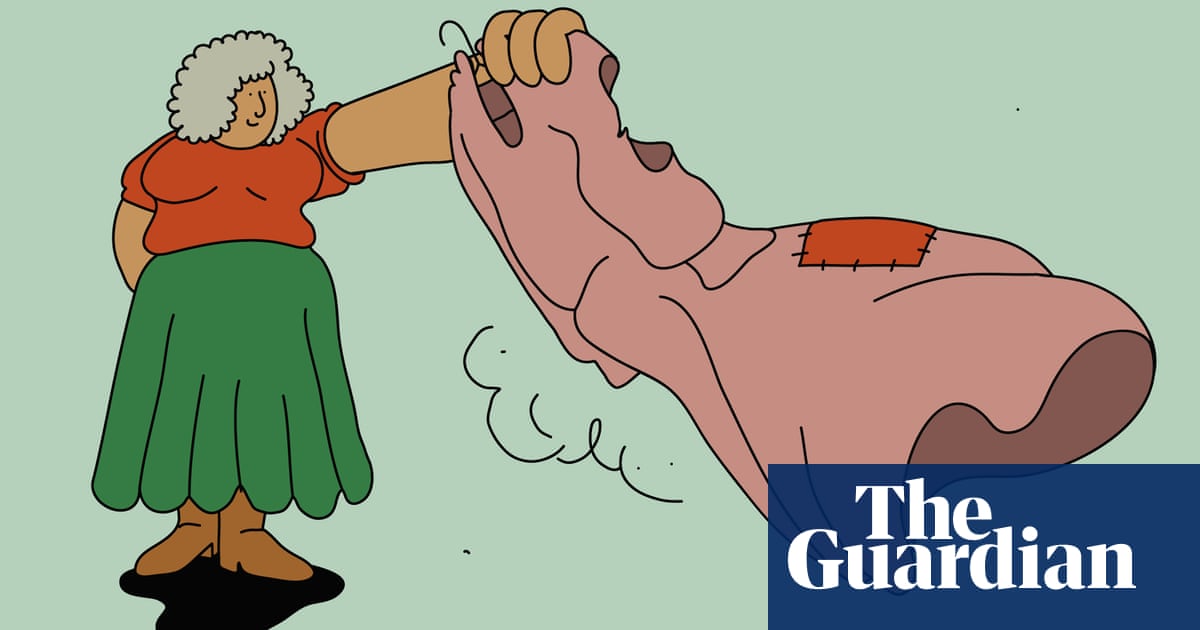
Throughout my career, people have asked me why I do what I do. I’m a forensic psychiatrist and psychotherapist; I’ve spent three decades working with people in prisons and secure hospitals who have committed violent offences. I give therapy to those struggling to articulate unspeakable things and come to terms with their new identities as offenders.
This means listening without judgment to things that in any other circumstances would produce horror and revulsion. For example, a man’s account of how he killed four people and severed one of their heads to make disposal of the body more manageable, or a woman’s insistence that the victim she stabbed was possessed by a demon. A man who insists his ex-lover made him jealous relates how he strangled her; a young mother blames “useless” medical professionals for her baby’s multiple trips to the emergency room. Why should we help “those people”? Aren’t our resources better spent helping their victims or other law-abiding citizens who need treatment? Such questions reveal a great deal about the society we have created.
“Why wouldn’t we help?” is my usual reply. There is a nuance here that some people may not wish to acknowledge: in prison, the identities of victim and perpetrator are not always distinct. Most of our prison population qualifies as both; recent studies in the UK and the US confirm that most convicted offenders have an experience of trauma, abuse and violence at least four times higher than the general population.
The way a society treats the least of its members is a kind of barometer of justice. In the UK, as in many other countries, the punishment for criminal rule-breaking is deprivation of liberty. Once someone is incarcerated, we have committed to helping them change and become less risky. Aside from a small subset of extreme cases, it is reasonable to believe that most offenders can return to the community after serving their time and live productive, crime-free lives. This is a concept enshrined in UK law since the Penitentiary Act of 1779, which made the rehabilitation of prisoners a function of all prisons.
But that mission is not always accomplished. Our justice system and the programmes in prisons designed to reduce recidivism often fall short. Resourcing is insufficient; the most recent survey from the National Audit Office indicates that among prisoners in England and Wales, as many as 90% have poor mental health, including PTSD and depression. Perhaps only 10-20% of the most acute cases will ever get seen by a forensic professional like me. On release, ex-offenders contend with economic and social problems that can quickly drive them back inside. Within the female prison estate, for example, more than half of women face homelessness when released.
People grow out of violence on what is known as the “age-crime curve”: most violent offenders will desist over time, with rule-breaking and harmful behaviours dropping off rapidly after 35. Treating younger people effectively in prison makes it less likely that they will return in later life. And given the costs of keeping someone incarcerated (around £40,000 per year), providing therapy is time and money well spent – practical and compassionate in equal measure.
In my role as a forensic psychiatrist, I coordinate medical treatment within secure psychiatric hospitals, including Broadmoor, where I’ve spent much of my career. I also offer therapy, individually and in groups, to patients willing to look at how their minds work. The process can be halting and difficult. Many of my patients lack emotional vocabulary and struggle with trust.
But often there is progress, however subtle, and there is hope. I have known a jealous man who strangled his lover move from self-righteousness and suicidality to acceptance and a willingness to take responsibility for his actions. I have watched a woman go from being a victim of her mental illness to someone who reduced her risk by gaining a new understanding of her “demons”. Taking agency is the first step towards recovery, and I am constantly humbled when I see the changes that can follow.
Sometimes I work with legal colleagues to assess a person’s state of mind for the family or criminal courts. In cases before the family court, like the young woman who blamed doctors for her baby’s “mystery illness”, I will recommend treatment. But it is often unavailable for mothers who need it – another sad indicator of our society’s priorities. In criminal cases, the psychiatric evidence I provide doesn’t get people a more lenient outcome or a “cushy” transfer to secure psychiatric care. The notion that a secure hospital is better than prison reflects how little many of us know about the double stigma of being both an offender and mentally unwell.
I can attest that most prisoners recoil at the prospect of being “nutted off” (sent to psychiatric care from prison or directly upon conviction) because of the stigma this involves and because they have more autonomy in prison. Prison may be by turns boring and terrifying, but you’re generally left to think your thoughts alone. When I have run group therapy sessions for homicide perpetrators, prisoners have spoken about watching the TV show Big Brother and likened it to their lives in the secure hospital. Their time is highly structured, and people like me scrutinise their every move and thought. I wonder if that “cushy” notion derives from a general belief that anything must be better than prison. Or perhaps the word “therapy” is associated with coddling, like a massage at a spa, rather than a hard and painful look at parts of your mind that you’ve been avoiding your whole life.
Doctors go toward suffering without judgment. We do not deal in absolutes but attend to what we can discover through listening, observation, and testing. Although there will be people who can’t or won’t change their minds for the better, I’ve found that most violent offenders are interested in understanding how they got into this mess and how they can do better in future. We know so much more today about the miraculous capacities and plasticity of the mind, particularly the still-developing young mind. We also have a wealth of research evidence about what types of therapy can make a difference. Failure to use such knowledge would be a kind of madness on our part. We all want the world to be a safer place. I suggest the pressing question about the treatment of violent offenders is not “Why bother?” but “Can we afford not to?”
Dr Gwen Adshead is a forensic psychiatrist and psychotherapist, and co-author, with Eileen Horne, of The Devil You Know












